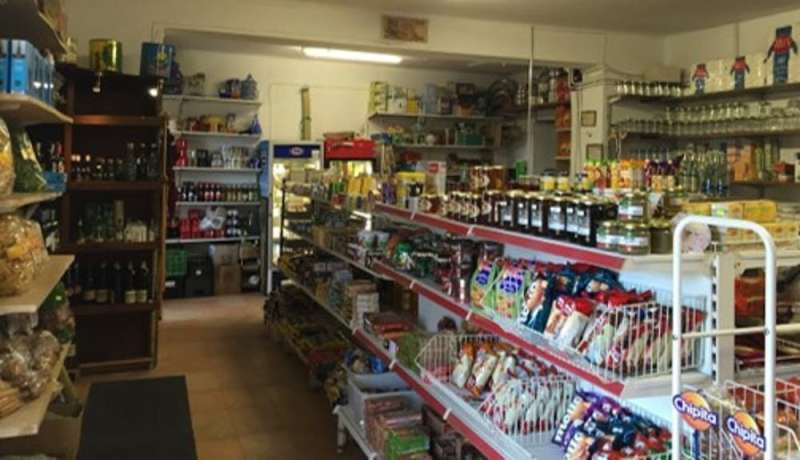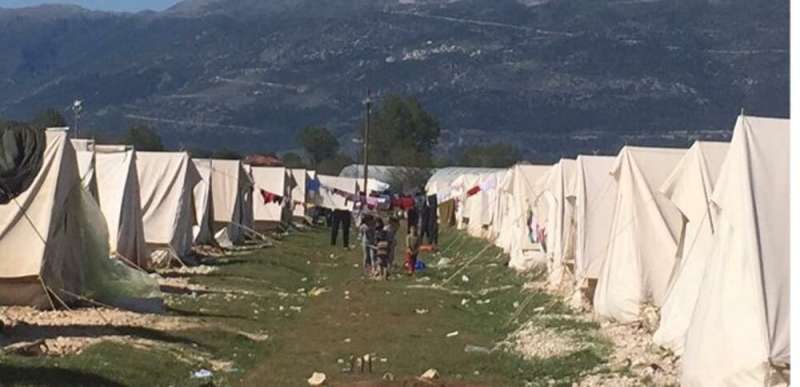Giving refugees money instead of goods can lead to price gouging, but it doesn’t have to
Refugees increasingly receive money from humanitarian agencies and organizations, instead of food, clothing and other items shipped from afar. This approach is intended to let refugees get more of what they need while also boosting local businesses.
But because local retailers sometimes respond to higher demand brought about by an influx of money by raising their prices, the emphasis on cash assistance can hurt both local residents and refugees—especially those who live in camps.
And yet we’ve determined that it’s possible for humanitarian organizations to give refugees cash without stoking inflation nearby.
Calibrating prices
This would be possible through a new system we are calling “price-dependent cash assistance.” We propose that humanitarian organizations increase cash assistance to reward local retailers when they reduce prices. We also support decreasing or terminating that aid to punish retailers who take advantage of the situation by raising prices.
Because local governments like to see more cash being brought into the local economies, we are suggesting that local governments monitor the prices of basic necessities and report what they see to humanitarian agencies and organizations.
One of us interviewed humanitarian organizations, retailers, suppliers and local authorities and collected data at refugee camps in Greece. Based on our extensive analysis of that information, we are proposing a new way for humanitarian organizations to decide on the right mix of money and goods to distribute to refugees.

This new mechanism would put more money in refugees’ hands as long as retailers keep their prices low. Instead of having a motive to raise their prices and profit from the cash assistance refugees get, local retailers would have an incentive to reduce their prices.
As a result, refugees could enjoy lower prices and the flexibility to use aid money as they see fit without disrupting the local economy. We believe that refugees, retailers and local residents would all be better off this way.
More refugees and more cash
This problem is important to resolve because there are more than 80 million people forcibly displaced worldwide, according to estimates made in 2021 before Russia invaded Ukraine, which sent another 6.6 million people abroad. About 27 million of the 80 million displaced were refugees, including large numbers from Syria, Venezuela, Afghanistan, South Sudan and Myanmar.
And about 40% of those refugees were living in camps or rural areas, according to United Nations estimates.
Humanitarian organizations such as Oxfam and Mercy Corps used to provide refugees with only food, clothing and other items known as in-kind assistance. As of 2014, those goods accounted for 94% of the humanitarian assistance worldwide, with the remaining 6% delivered as money.
By 2019, cash assistance increased to almost 18% of the humanitarian aid.These groups, as well as government-run international agencies like the World Food Program, are distributing more cash.
The approach we propose provides more flexibility and can, through purchasing power, help restore refugees’ dignity.
Partnership between humanitarian organizations and government is essential for providing cash assistance to refugees
This article is republished from The Conversation under a Creative Commons license. Read the original article.![]()
Citation:
Giving refugees money instead of goods can lead to price gouging, but it doesn’t have to (2022, June 3)
retrieved 3 June 2022
from https://phys.org/news/2022-06-refugees-money-goods-price-gouging.html
This document is subject to copyright. Apart from any fair dealing for the purpose of private study or research, no
part may be reproduced without the written permission. The content is provided for information purposes only.

Refugees increasingly receive money from humanitarian agencies and organizations, instead of food, clothing and other items shipped from afar. This approach is intended to let refugees get more of what they need while also boosting local businesses.
But because local retailers sometimes respond to higher demand brought about by an influx of money by raising their prices, the emphasis on cash assistance can hurt both local residents and refugees—especially those who live in camps.
And yet we’ve determined that it’s possible for humanitarian organizations to give refugees cash without stoking inflation nearby.
Calibrating prices
This would be possible through a new system we are calling “price-dependent cash assistance.” We propose that humanitarian organizations increase cash assistance to reward local retailers when they reduce prices. We also support decreasing or terminating that aid to punish retailers who take advantage of the situation by raising prices.
Because local governments like to see more cash being brought into the local economies, we are suggesting that local governments monitor the prices of basic necessities and report what they see to humanitarian agencies and organizations.
One of us interviewed humanitarian organizations, retailers, suppliers and local authorities and collected data at refugee camps in Greece. Based on our extensive analysis of that information, we are proposing a new way for humanitarian organizations to decide on the right mix of money and goods to distribute to refugees.

This new mechanism would put more money in refugees’ hands as long as retailers keep their prices low. Instead of having a motive to raise their prices and profit from the cash assistance refugees get, local retailers would have an incentive to reduce their prices.
As a result, refugees could enjoy lower prices and the flexibility to use aid money as they see fit without disrupting the local economy. We believe that refugees, retailers and local residents would all be better off this way.
More refugees and more cash
This problem is important to resolve because there are more than 80 million people forcibly displaced worldwide, according to estimates made in 2021 before Russia invaded Ukraine, which sent another 6.6 million people abroad. About 27 million of the 80 million displaced were refugees, including large numbers from Syria, Venezuela, Afghanistan, South Sudan and Myanmar.
And about 40% of those refugees were living in camps or rural areas, according to United Nations estimates.
Humanitarian organizations such as Oxfam and Mercy Corps used to provide refugees with only food, clothing and other items known as in-kind assistance. As of 2014, those goods accounted for 94% of the humanitarian assistance worldwide, with the remaining 6% delivered as money.
By 2019, cash assistance increased to almost 18% of the humanitarian aid.These groups, as well as government-run international agencies like the World Food Program, are distributing more cash.
The approach we propose provides more flexibility and can, through purchasing power, help restore refugees’ dignity.
Partnership between humanitarian organizations and government is essential for providing cash assistance to refugees
This article is republished from The Conversation under a Creative Commons license. Read the original article.![]()
Citation:
Giving refugees money instead of goods can lead to price gouging, but it doesn’t have to (2022, June 3)
retrieved 3 June 2022
from https://phys.org/news/2022-06-refugees-money-goods-price-gouging.html
This document is subject to copyright. Apart from any fair dealing for the purpose of private study or research, no
part may be reproduced without the written permission. The content is provided for information purposes only.
